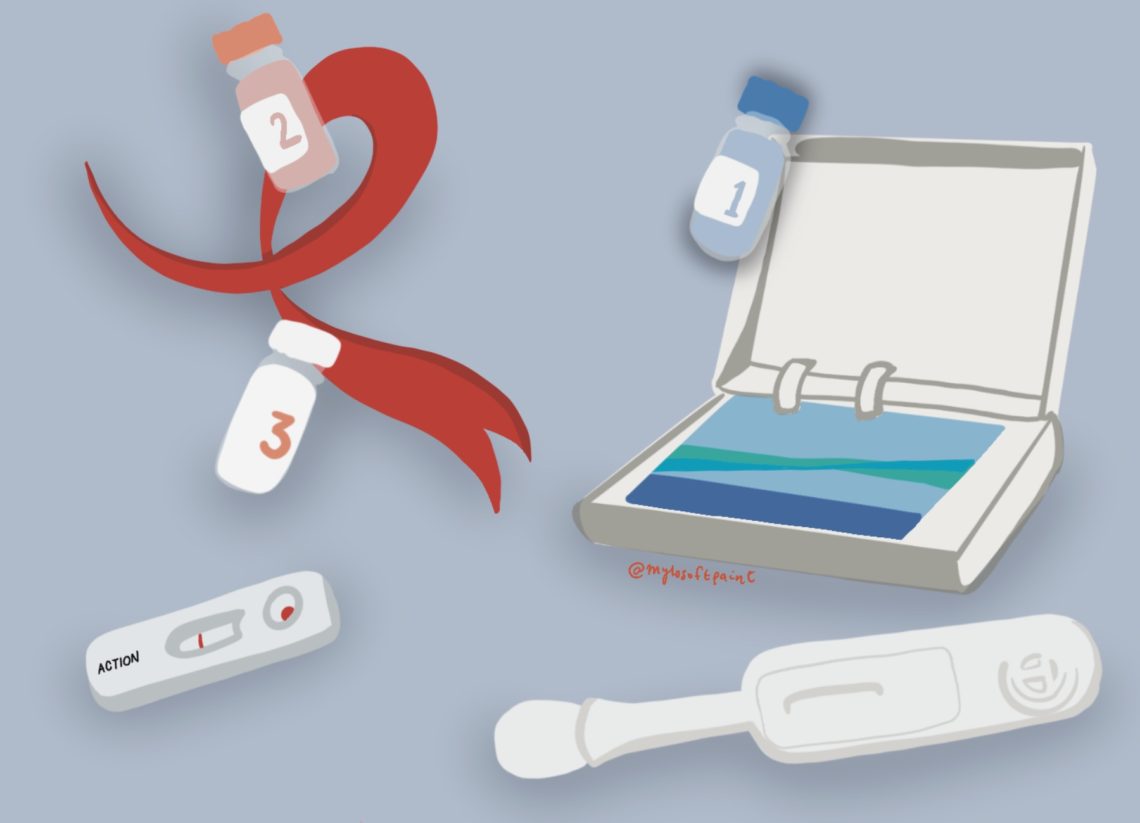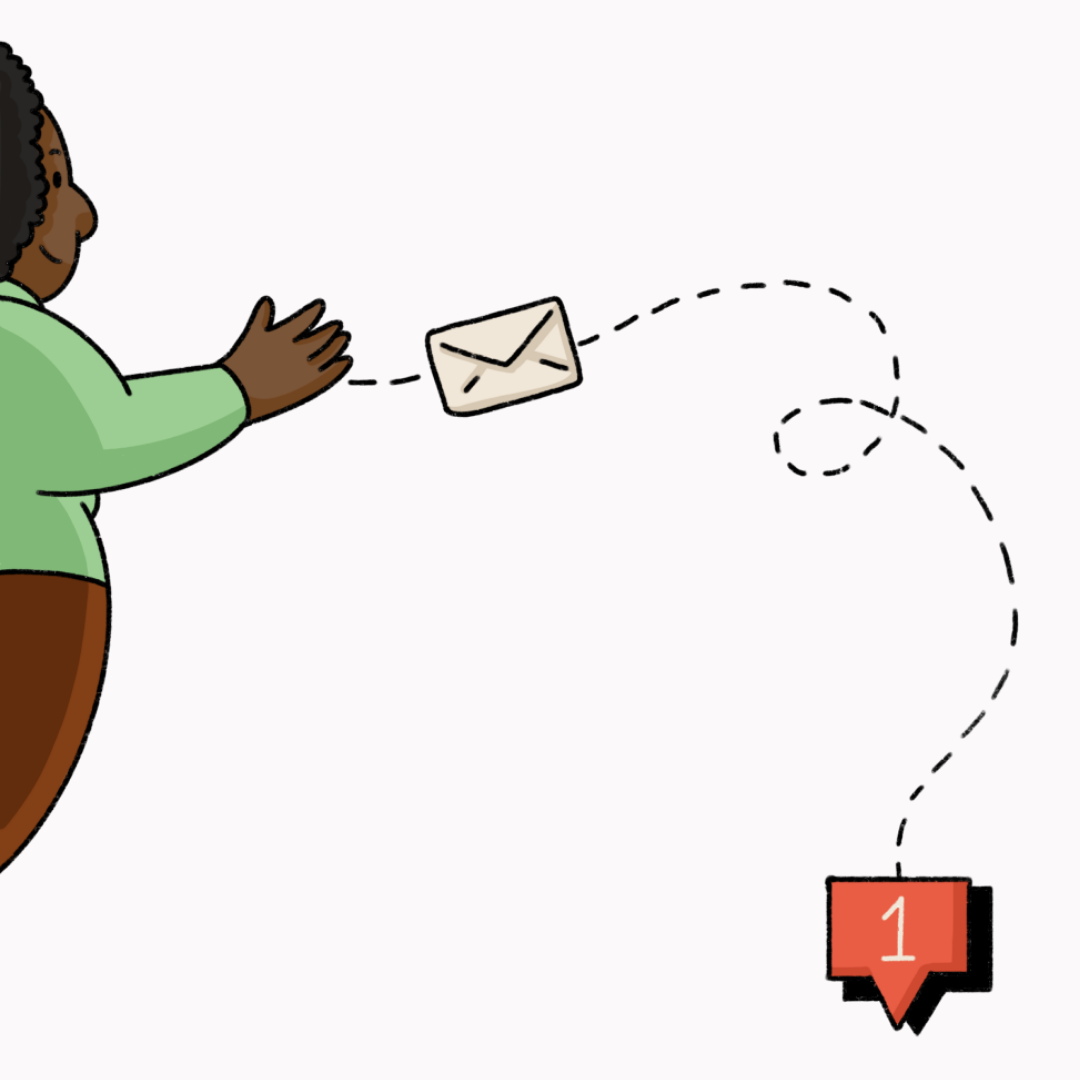Written by: Patrick O’Byrne (he/him), RN-EC PhD.
Edited by: Étienne Maes (he/him).
What do you think about when you hear the words “self-test”? Pregnancy test, glucose test, or even an allergy test might come to mind. But what about an HIV self-test?
What is GetaKit?
It all started in late April 2020. After gaining special access approval from Health Canada, a team of nurses at the University of Ottawa and Ottawa Public Health, as well as staff from the Ontario HIV Treatment Network began to distribute bioLytical’s INSTI® HIV self-test in Ottawa. Eligible participants [18 years old, HIV-negative or unsure of status, not in an HIV vaccine trial, not taking HIV PrEP (pre-exposure prophylaxis), living in Ottawa, with no bleeding disorders] could register and order a self-test kit via GetaKit.ca as of mid-July 2020. Since March 2021, the eligible age has been changed to 16, and as of April 2021, GetaKit is now available in a few select locations outside of Ottawa.
At its core, Getakit is a pilot study to determine the feasibility and acceptability of a mail-out HIV testing program. After the pandemic hit, many sexual health clinics and services shut their doors. All while HIV and STI rates remained the same. In fact, despite stay-at-home orders, people continued to have sex with new partners, creating situations where HIV transmission could occur, but diagnosis could not. HIV self-testing through GetaKit is a modern and pandemic-friendly strategy to help ensure quick access to sexual health services.
How does it work?
To obtain an HIV self-test through GetaKit.ca, participants register for a secure account at GetaKit.ca and complete the self-assessment. Participants who meet the eligibility criteria receive an HIV self-test kit free of charge. A kit arrives in less than a week in a discreet and friendly box. It includes one lancet, one bandage, one testing device, three bottles, one set of instructions, and a handy workstation. It also includes HIV prevention materials. You can watch an instructional video guide here.
The GetaKit team reaches out twice, either by text or email, to remind participants that they can report their results and twice to participants who are eligible for PrEP referral if they have reported a negative result. The reporting of these results is wholly confidential within the GetaKit.ca website and is protected by the Research Ethics Board (REB). While results reporting is not mandatory, it is highly encouraged, and participants can report ‘prefer not to answer’. This information is helpful for us to assess the usability of the GetaKit platform and to ensure participants are linked to appropriate HIV prevention and/or treatment services (e.g., PEP (post-exposure prophylaxis), PrEP, harm reduction, further STI testing if negative or confirmatory blood work and HIV care if positive).
A Status-Neutral Approach
As part of a status-neutral approach, GetaKit.ca wants to ensure that participants are aware of their local HIV supports and services. This means that regardless of whether someone reports a positive or negative result, someone from the GetaKit team will be in touch to offer information about next steps and relevant resources. If the participant reports an ‘invalid’ result, that is, the device didn’t work, the GetaKit team sends them a new one. This way, the testing experience does not end when a participant finds out their result. In fact, it is only the beginning.
HIV Priority Groups
Ensuring that HIV self-test kits are sent to people who need it most, we partner closely with AIDS Service Organizations (ASOs) who take the lead in promoting and following-up with their clients. Before launching a new GetaKit site, GetaKit.ca works closely with the agency’s staff to tailor their own GetaKit website so that the information reflects the specific needs of the communities they are looking after. The website works in tandem with the sexual health services the ASO already provides, fostering a welcoming and safe space for participants to find out their results, resulting in regionally specific outreach, support and care. This is a central pillar to the GetaKit model.
A couple of ASOs include The Black Coalition for AIDS Prevention (Black CAP) and The AIDS Committee of Durham Region (ACDR).
We are Excited to Be Here!
If you ask anyone working with the GetaKit.ca pilot project they would agree that it has morphed into a behemoth, and that everyone is really excited to be here. Ontario has been waiting for HIV self-test kits for some time, and when we make testing accessible, people can take control of their health. When we put self-test kits in people’s hands, we give them agency to make decisions about their sexual health.
Interested in registering for a self-test? Learn more at GetaKit.ca.



